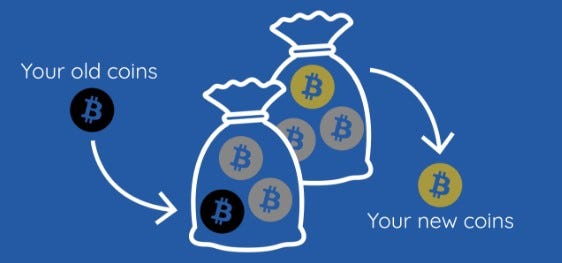Where does it result from? Bitcoin is mined on a distributed pc network of customers running particular pc software; the network handles certain mathematical proofs, and searches for a specific knowledge collection (“stop”) that creates a certain sample once the BTC algorithm is put on it. A fit produces a bitcoin. It’s complicated and time- and energy-consuming. Just 21 million bitcoins are ever to be mined (about 11 million are still in circulation). The [e xn y] problems the network computers solve get progressively harder to help keep the mining operations and present in check.
This system also validates all the transactions through cryptography. How does Bitcoin perform? Net customers move digital resources (bits) to one another on a network. There’s no online bank; somewhat, Bitcoin has been described as an Internet-wide spread ledger. People get Bitcoin with cash or by offering an item or support for Bitcoin. Bitcoin wallets keep and make use of this electronic currency. Consumers may possibly promote out of this electronic ledger by trading their Bitcoin to somebody else who desires in. Everyone can do this, anywhere in the world. There are smartphone apps for performing mobile Bitcoin transactions and bitcoin mixer exchanges are populating the Internet.
How is Bitcoin valued? Bitcoin isn’t held or managed by an economic institution; it is wholly decentralized. Unlike real-world income it can not be devalued by governments or banks. Instead, Bitcoin’s value lies merely in its acceptance between users as a form of cost and because its present is finite. Their global currency values fluctuate relating to produce and demand and market speculation; as more folks create wallets and hold and spend bitcoins, and more companies accept it, Bitcoin’s value will rise. Banks are actually wanting to value Bitcoin and some expense sites estimate the price of a bitcoin is going to be thousands of pounds in 2014.
What are its advantages? There are advantages to customers and retailers looking to use this payment option. Rapidly transactions – Bitcoin is shifted quickly within the Internet. No fees/low expenses — Unlike charge cards, Bitcoin may be used free of charge or very low fees. Without the centralized institution as middle person, you can find number authorizations (and fees) required. This increases gain prices sales.
Removes fraud risk -Only the Bitcoin operator may send payment to the supposed receiver, who is the only person who are able to receive it. The system understands the move has happened and transactions are validated; they cannot be challenged or taken back. That is large for on line retailers that are frequently subject to bank card processors’assessments of whether a deal is fraudulent, or organizations that pay the large price of credit card chargebacks.
Data is protected — As we have seen with recent hacks on national merchants’cost processing systems, the Net is not always a safe area for individual data. With Bitcoin, consumers don’t stop trying personal information. They have two secrets – a public important that provides whilst the bitcoin address and a private key with personal data. Transactions are “signed” digitally by combining people and private keys; a mathematical function is used and a certification is made indicating the user caused the transaction. Digital signatures are unique to each purchase and can’t be re-used.
The merchant/recipient never sees your key information (name, number, bodily address) so it’s fairly anonymous but it’s traceable (to the bitcoin address on the public key). Easy payment program — Retailers may use Bitcoin entirely as a payment process; they do not have to put up any Bitcoin currency because Bitcoin may be transformed into dollars. Customers or suppliers may deal in and out of Bitcoin and different currencies at any time.
Global payments – Bitcoin is employed around the globe; e-commerce retailers and support suppliers can certainly accept international funds, which open new possible marketplaces for them. Easy to monitor — The network tracks and permanently records every purchase in the Bitcoin block cycle (the database). In case of possible wrongdoing, it is easier for police force officials to track these transactions.
Micropayments are probable – Bitcoins may be divided down to at least one one-hundred-millionth, so operating little obligations of a buck or less becomes a totally free or near-free transaction. This is actually a actual boon for comfort shops, espresso shops, and subscription-based websites (videos, publications).
